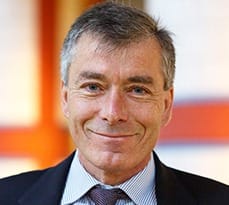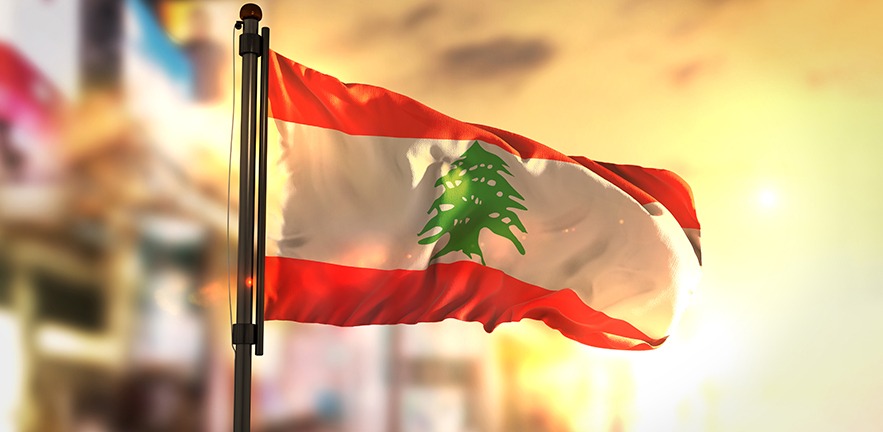The decline of Lebanon, the ‘Switzerland of the Middle East’, is a cautionary tale for the West about autocratic rule and scapegoating.
Foreword by Christoph Loch, Dean of Cambridge Judge Business School

The following article is a heartfelt opinion piece – an expression of mourning by a respected Lebanese figure who seeks to remain anonymous and is thus identified as “L.C.” (for Lebanese Citizen) – about the decline of a beautiful country of clever people. We may ask what this has to do with us in the UK, the US or elsewhere, and the answer is: quite a lot. This is a cautionary tale of how, when citizens don’t pay attention, power can easily get concentrated and then loses accountability, which allows it to get corrupted and misused – and for blame for the resulting problems to be falsely attributed. The author draws a direct parallel to Brexit and the recent events in the United States – highlighting the danger in citizens being lured by a false sense of nostalgia and easy scapegoating – and similar comparisons can be drawn for Russia and elsewhere around the globe.
By L.C
Don’t blame religion for Lebanon’s sad decline, as that’s an easy excuse; what is really needed is financial integrity and political accountability
In February 2005 Lebanon’s prime minister, Rafic Hariri, was assassinated, along with 21 others; a total of 58 politicians, newspaper reporters and bystanders were assassinated – and 335 injured – in this bloody year, paving the way for a shift in power from the Sunni-controlled government to the dominance and influence of the Shia opposition. As in the famous movie The Godfather, in which Michael Corleone arranges the execution of New York’s other mafia bosses to cement his family’s power, assassinations in Lebanon from 2004 to 2008 transformed the local political landscape and silenced differing opinions. Power shifted from the Hariri family – Sunni Muslims with a close alliance to Saudi Arabia – to the de facto dominant Hezbollah, with a close allegiance to Iran, the leading Shia Muslim country.
Conventional wisdom holds that Lebanon’s confessional structure, encompassing 18 official religious denominations, has stifled Lebanon’s economy. I disagree, arguing that alliances between confessions has helped the Lebanese population – but at the cost of chronic national bankruptcy and a spiral towards what the president of Lebanon recognised recently as a “descent to hell”.
So now is the time to break that spiral and heal Lebanon. The country needs to develop a culture of political and financial integrity and accountability, and to reject the easy excuse that religion and factionalism are the key ingredients to today’s disarray.
Let’s start with Hezbollah, which was originally established as a resistance movement to free Lebanon from Israeli occupation of the South. In May 2000, following the withdrawal of Israeli forces from Lebanon, Hezbollah maintained de jure legitimacy and created alliances with Christian factions, effectively consolidating its internal dominance of the political and socio-economic system.
One may wonder how a Christian clan supported Hezbollah in its ascent to power and dominance of the political landscape. Many circumstances may have contributed to this situation, but the catalyst is undoubtedly a nostalgia for political leadership and restoration of the Christian president’s role as a leader. Many Christians reacted negatively to losing their identity to Hariri’s Sunni Muslim dominance.
This impulse and search for the identity of the tribe bears a similarity to the nostalgia for greatness witnessed in the Brexit movement in the UK and also in the slogan “Make America Great Again”. Deep-seated tribal impulses seek to recreate an identity of the individual tribe following a leader who promises greatness again, in an “us-against-them” message.
The year 1990 ushered in the post-civil war era, governed by the Taef Accord, which shifted executive government power from the Christian Maronite president to the Sunni prime minister. GDP grew from a low of USD 2.84 B in 1990 to USD 21.5 B in 2005 – the year Prime Minister Hariri was murdered – and then to a staggering USD 55 B in 2018. The growth in GDP from 1990 to 2005 represents an impressive 757% and from 1990 to 2018 a staggering 1,900%. The government and the central bank moved early on to peg and support the Lebanese pound to the US dollar throughout the period until 2020.
The average Lebanese citizens may be excused for their complacency: middle-class living standards grew substantially, imported luxury products filled the supermarket shelves, and many people on an average income discussed their next holiday in Ibiza, Mykonos or Bodrum.
But this is also what occurred: Low-income Lebanese citizens were seduced by politicians with heavily subsidised electricity, bread and fuel – along with many newly created government jobs. Given these low electricity prices many Lebanese people accepted daily power cuts; it is far easier for politicians to demand subsidies on behalf of their constituents/religious denominations than to explain a bloated budget deficit and an inability to balance the accounts. It was a crisis waiting to happen.
By October 2019, major protests had erupted in the streets of Beirut and across the country, only to be faced with an aggressive security apparatus that was by now controlled by the ruling politicians. With the collapse of the economy, investors, savers and the general population came to realise that what had been created was in effect a Ponzi scheme – and we all know how those end up. So over the past 18 months, interest rates needed to rise in order to finance the artificial exchange rate peg and the national budget deficit. As the flow of foreign capital dwindled, unemployment mounted and ultimately the economy collapsed.
The current struggle in Lebanon should not be associated with religion. The assassination of Prime Minister Hariri was not the assassination of a Sunni Muslim leader but rather the assassination of a political competitor. The hijacking of the Lebanese political establishment reflects the hunger for autocratic political rule rather than religion.
If we disregard the facile explanation of religious tribalism and see politics in Lebanon for what it is, we can easily extrapolate to similar tendencies across the world. In the US, the storming of Capitol Hill and the need for more than 25,000 US troops in Washington for the inauguration of the new US president are eerily in parallel with Lebanon. The demise of Lebanon should send alarm signals to the West, which should ensure that democratic institutions are strong enough to withstand authoritarianism through the ability to hold political leaders to account for both their words and their actions.


